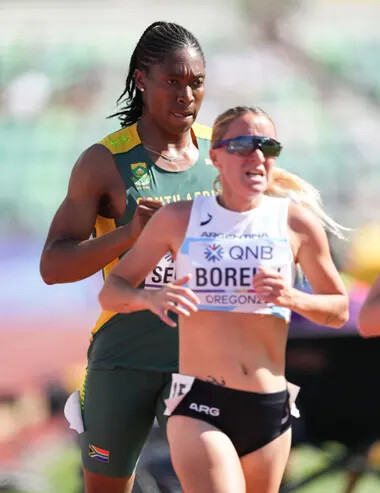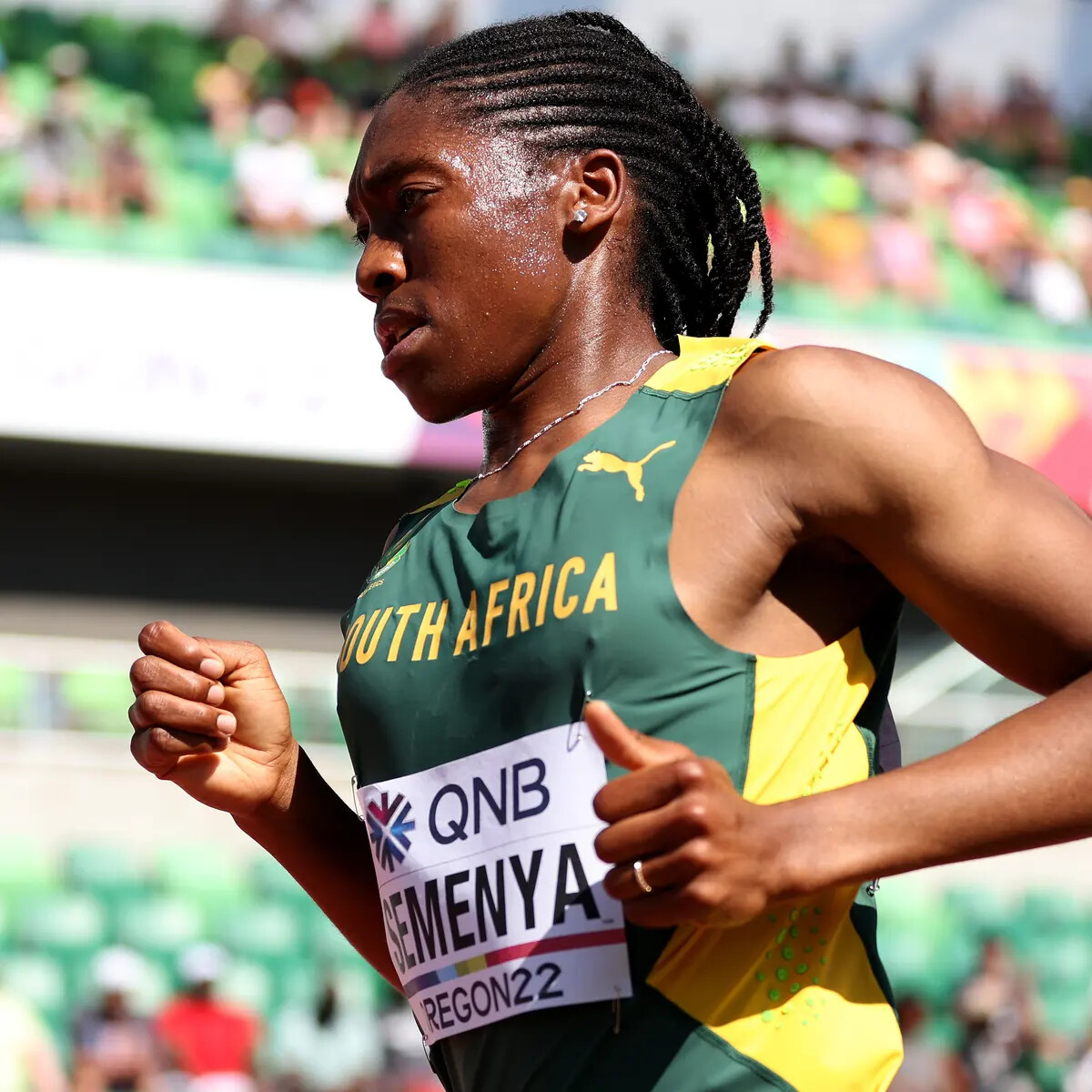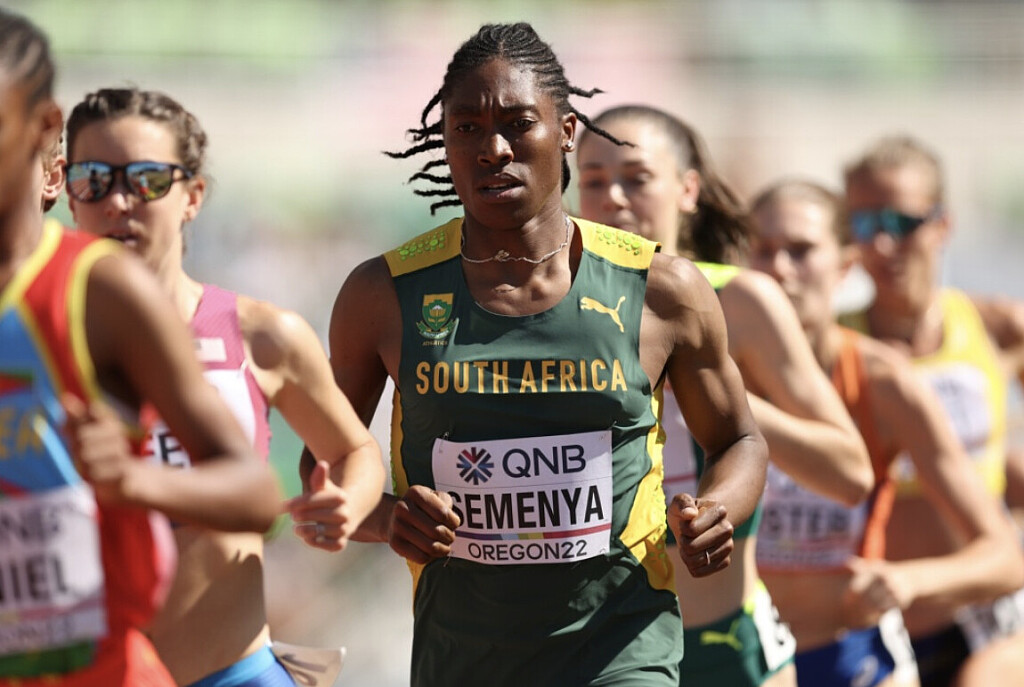Running News Daily
Running News Daily is edited by Bob Anderson. Send your news items to bob@mybestruns.com Advertising opportunities available. Train the Kenyan Way at KATA Kenya and Portugal owned and operated by Bob Anderson. Be sure to catch our movie A Long Run the movie KATA Running Camps and KATA Potato Farms - 31 now open in Kenya! https://kata.ke/
Index to Daily Posts · Sign Up For Updates · Run The World Feed
Caster Semenya unnoticed at World Championships The South African Olympic champion fails to advance in the 5,000 meters in Oregon – her first major international competition since 2017
How many times had South Africa’s Caster Semenya charged onto the Hayward Field homestretch seemingly in a different race than the rest of the pack, the sport’s most storied stadium rocking as Semenya raced into the deafening roar?
How many times had American track and field’s most knowledgeable fans, most passionate crowd stood in appreciation of the two-time Olympic, three-time World 800-meter champion?

On a scalding hot afternoon at the World Championships on Wednesday, Semenya labored through the final meters of her 5,000-meter heat in front of a half-empty stadium, largely ignored or unnoticed even in a place that calls itself Tracktown U.S.A.
Semenya, one of the most compelling and controversial athletes of her generation, has fallen so far off the sport’s radar since 2019 that the most well-known of her fellow competitors on Wednesday didn’t even realize she was in the competition.
“Caster?” asked Sifan Hassan, the Olympic 5,000 and 10,000 champion from the Netherlands, who ran in a later heat on Wednesday.
“Caster Semenya ran the 5,000?” Hassan asked again. “ I had no idea. I didn’t even know she was here. Did she make it?”
Semenya, running in her first major international competition since winning the 2017 Worlds 800 title, did not advance to the final, finishing 13th in her heat, running 15 minutes, 46.12 seconds, nearly a minute off the winning time of Gudaf Tsegay of Ethiopia (14:52.69).

“Cooking,” Semenya said after the race, referring to the heat. She declined to answer reporters’ questions.
Under different circumstances, the sport would be obsessing over the prospect of a showdown between Semenya, 31, and Athing Mu, the 20-year-old Olympic champion from the U.S. in Sunday’s 800 final and whether the pair could challenge the world record of 1:53.28 that was set by Czechoslovakia’s Jarmila Kratochvilova in 1983.
Instead, Semenya, who was assigned female at birth, raised as a girl and identifies as a woman has not raced the 800 in meets sanctioned by World Athletics, the sport’s international governing body, because of her refusal to submit to the organization’s guidelines regarding intersex athletes.
Under the World Athletics guidelines athletes in events from the 400 to the mile – in other words, Semenya’s events – are required to take hormone suppressing drugs to reduce their testosterone to below 5 nanomoles per liter for at least six months before being allowed to compete internationally.
Semenya has an intersex condition called Differences in Sexual Development (DSD) or 46, XY that because of differences in sex development that causes male and female traits and a testosterone level higher than the typical female range. She is not transgender.
“I am a woman and I am a world-class athlete,” Semenya said in 2019, shortly before the Prefontaine Classic, her final 800. “The IAAF will not drug me or stop me from being who I am.”
Semenya had found herself unwittingly in the center of controversy almost from the moment she emerged on the world stage a decade earlier.
She won her first Worlds title in 2009 as an 18-year-old, a victory that prompted Russia’s Mariya Savinova to suggest the South African was a man.
“Just look at her,” Savinova said.
While the results of Semenya’s sex test were supposed to be confidential they were leaked to Australia’s Daily Telegraph. Semenya has internal testes but no ovaries or womb, the newspaper reported quoting the test report.
“She is a woman, but maybe not 100 percent,” IAAF secretary general Pierre Weiss said at the time, doing nothing to discourage the headline writers at New York’s Daily News who blared that the World champion “is a woman … and a man.”
Semenya began taking a hormone suppressant drug. She finished second to Savinova at both the 2011 Worlds and 2012 Olympics.
“The IAAF used me in the past as a human guinea pig to experiment with how the medication they required me to take would affect my testosterone levels,” she said in 2019. “Even though the hormonal drugs made me feel constantly sick the IAAF now wants to enforce even stricter thresholds with unknown health consequences.
“I will not allow the IAAF to use me and my body again. But I am concerned that other female athletes will feel compelled to let the IAAF drug them and test the effectiveness and negative health effects of different hormonal drugs. This cannot be allowed to happen.”
Semenya was awarded the 2012 Olympic gold medal in 2017, two years after the World Anti-Doping Agency recommended that Savinova receive a lifetime ban for doping and her results dating to July 2010 be disqualified.
Given the event’s suspect history, the irony of World Athletics now demanding she dope to level the playing field is not lost on Semenya.
“I’m not going to do that,” she told the Orange County Register after the 2019 Prefontaine meet. “I’m a very clean athlete. I believe in the clean sport. I believe in the equal opportunities. At the end of the day, this is a woman’s sport, this is a man’s sport. If they’re going come (at) me with that nonsense then why do you lead?”
Semenya challenged World Athletics guidelines with the Court of Arbitration for Sport. A three-member CAS panel in June 2019 said the World Athletics policy was “discriminatory” toward athletes with DSD but two of the panel members, nevertheless agreed with the World Athletics that policy was “necessary, reasonable and proportionate” to counter advantages DSD athletes have over other female competitors. Semenya and other female athletes with DSD should be considered “biological males” World Athletics told CAS.
Switzerland’s Supreme Court rejected Semenya’s appeal in September 2020. She filed an appeal with the European Court of Human Rights in February 2021.
While Semenya fell short in her bid to reach the Olympic 200-meter qualifying standard last year, the success of other intersex athletes has raised further questions about the World Athletics policy.
by Scott Reid
Login to leave a comment
World Athletics Championships Budapest23
Budapest is a true capital of sports, which is one of the reasons why the World Athletics Championships Budapest 2023 is in the right place here. Here are some of the most important world athletics events and venues where we have witnessed moments of sporting history. Throughout the 125-year history of Hungarian athletics, the country and Budapest have hosted numerous...
more...




